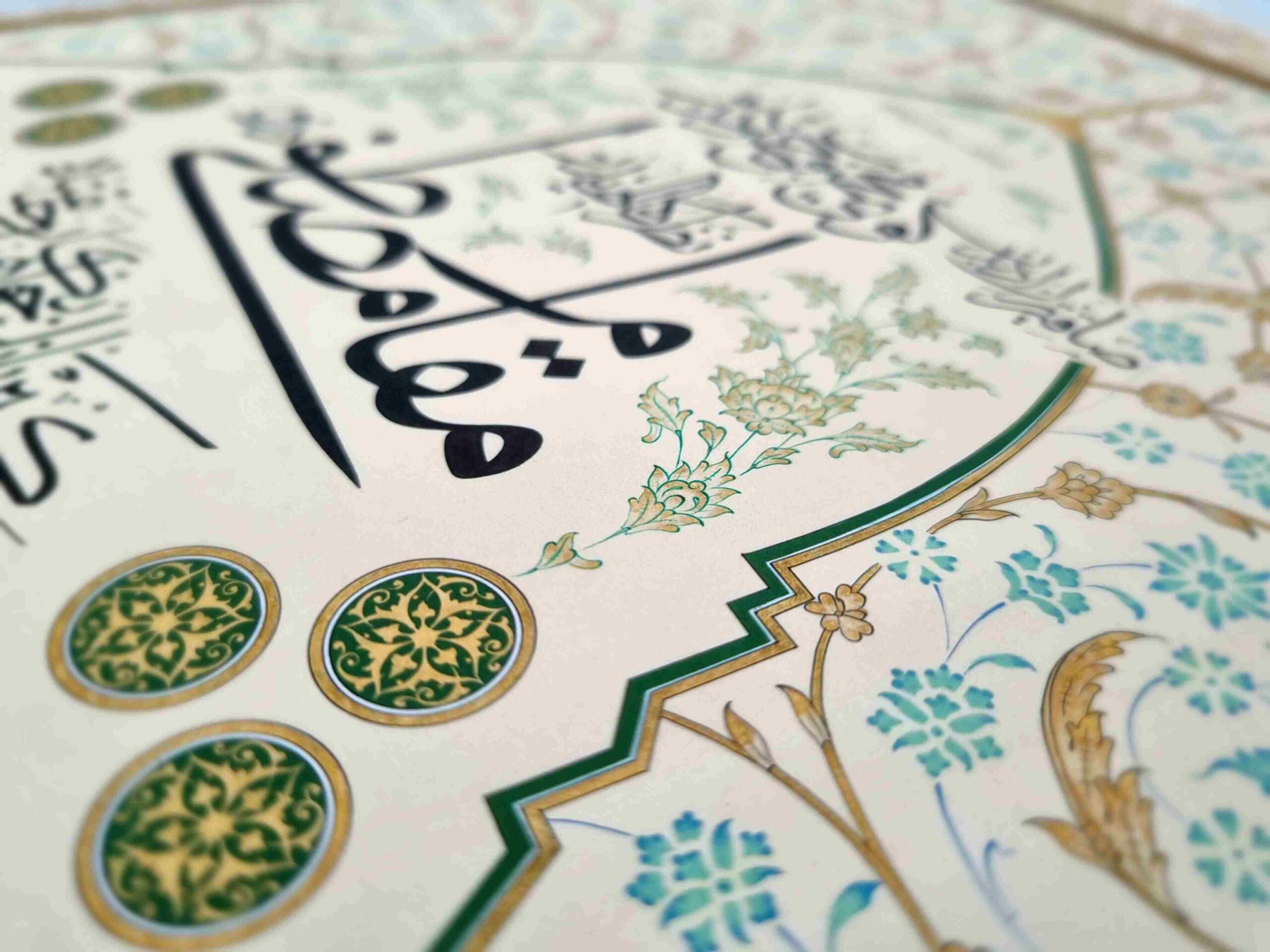Maqam e Mustafa Poem – Ottoman Thuluth Calligraphy Print Framed
A Closer Look at This Unique Piece

Product-Related Questions
Yasin Art is Committed to Delivering High-Quality Art, Crafted With Care and a Focus on Excellence.
Şair Nabi
Şâir Nâbî (1642–1712) was a renowned Ottoman poet, scholar, and intellectual, celebrated for his profound contributions to Turkish literature during the 17th century. Born in Urfa, Nâbî rose to prominence as one of the most influential figures of his time, blending classical Ottoman poetry with deep moral and philosophical insights.
Nâbî is best known for his work “Hayriyye”, a didactic poem written as advice to his son, which reflects his wisdom and ethical teachings. His poetry often explored themes of love, spirituality, morality, and the human condition, earning him a reputation as a “poet of wisdom.” His style was marked by clarity, depth, and a focus on social and moral issues, distinguishing him from his contemporaries.
In addition to his literary achievements, Nâbî served as a statesman and held various administrative roles in the Ottoman Empire. His travels and experiences, including his pilgrimage to Mecca, greatly influenced his work. One of his most famous poems, a naat (a poem in praise of the Prophet Muhammad, peace be upon him), is said to have been miraculously recited from the minarets of the Prophet’s Mosque in Medina, a testament to his deep devotion and spiritual connection.
Nâbî’s legacy endures as a bridge between classical Ottoman literature and the evolving literary traditions of his time, making him a timeless figure in Turkish cultural history.



